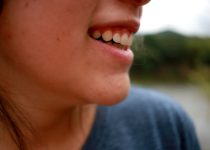Acne: A Comprehensive Guide To Treatment And Prevention
Acne is a common skin condition that affects people of all ages, particularly teenagers and young adults. It occurs when hair follicles become clogged with oil and dead skin cells, leading to the formation of pimples, blackheads, and whiteheads. While acne is not typically a serious medical condition, it can cause significant emotional distress and scarring. Fortunately, there are numerous effective treatments available to help manage and prevent acne.
**Causes of Acne**
Acne is primarily caused by a combination of factors, including:
* Hormonal changes during puberty and menstruation
* Overproduction of sebum (oil) by the sebaceous glands
* Clogged hair follicles
* Bacterial infection
**Symptoms of Acne**
The most common symptoms of acne include:
* Pimples (pustules): Small, red bumps with white or yellowish pus
* Blackheads (comedones): Open clogged pores that appear black
* Whiteheads (closed comedones): Closed clogged pores that appear white
* Nodules: Large, painful bumps deep in the skin
* Cysts: Pus-filled sacs deep in the skin
**Treatment Options**
There are various treatment options available for acne, depending on its severity and type. Some common treatments include:
* **Topical medications:** These are applied directly to the skin and contain ingredients such as benzoyl peroxide, salicylic acid, or retinoids. They help kill bacteria, reduce inflammation, and unclog pores.
* **Oral medications:** These are taken by mouth and include antibiotics, isotretinoin (Accutane), and hormonal treatments. They are typically used for more severe acne.
* **Light therapy:** This involves exposing the skin to specific wavelengths of light to reduce inflammation and kill bacteria.
* **Chemical peels:** These are chemical solutions applied to the skin to remove the top layers, revealing smoother, less acne-prone skin.
* **Microdermabrasion:** This is a minimally invasive procedure that uses a fine abrasive material to exfoliate the skin and reduce scarring.
**Prevention Tips**
In addition to treatment, there are several measures you can take to help prevent acne:
* Wash your face twice a day with a gentle cleanser.
* Avoid touching your face.
* Use oil-free skincare products.
* Limit your intake of sugary and processed foods.
* Manage stress, as it can trigger acne.
* Get enough sleep.
**Conclusion**
Acne is a common skin condition that can be effectively treated and prevented. By understanding the causes and symptoms of acne, and by following the appropriate treatment and prevention tips, you can achieve clearer, healthier skin. If you have persistent or severe acne, it is essential to consult a dermatologist for personalized advice and treatment options.


